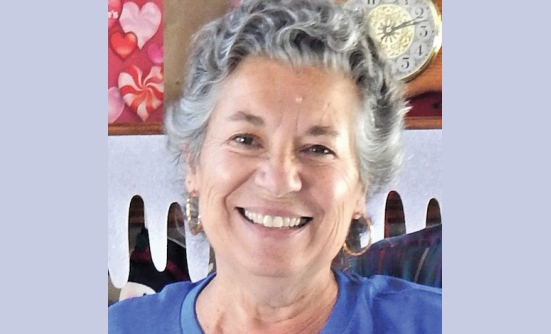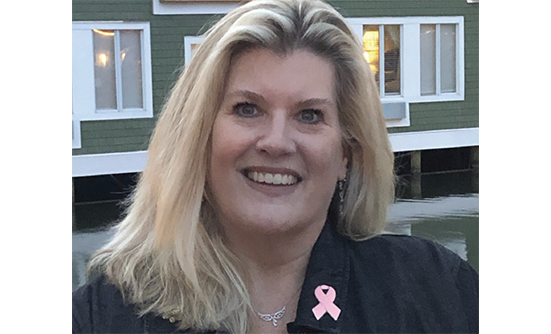A diagnosis of cancer is a significant source of chronic stress for patients and their families, but it doesn’t have to be, according to Nancy W. Fawzy, PhD, RN, Board President of Triage Cancer, Culver City, CA.
According to Dr. Fawzy, minimizing stress is not only important for promoting good psychosocial health and quality of life throughout survivorship, but also for better disease outcomes.
Stress Is Harmful to the Body
“When we experience an instant stressor, our bodies respond by secreting chemicals we need to either ‘fight or flight,’ and then those chemicals stop secreting as soon as the need for them is gone,” she said. “Studies show that chronic secretion of these chemicals literally makes us sick, because it affects our immune system, and for patients with cancer, it affects cancer promotion, tumor growth, and metastases.”
However, telling patients with cancer to relax and shrug off their diagnosis isn’t the answer. Dr. Fawzy points to studies of men with melanoma in which the worse rates of recurrence and survival were observed in patients who “brushed off” their diagnosis, because they didn’t take precautions or make significant lifestyle changes (for example, they continued to go outside without proper sun protection).
“Surprisingly, the people who are most angry about their diagnosis are the ones who do the best in treatment and in survivorship,” Dr. Fawzy says. The key to managing stress is learning how to practice effective coping strategies. “Avoidance isn’t effective when it results in no change.”
Identify Your Stressors
Before stress can be managed, you must be aware of what your minor and major stressors are. Write down your daily activities, assigning each a value from 1 to 3, with 1 being “a little stressful” and 3 being “most stressful.” Next, describe how you usually respond to these stressors mentally, physically, and behaviorally.
For example, you rate your cancer diagnosis as a level 3 stressor, and you’ve noticed that since the diagnosis, you’re feeling anxious and having trouble sleeping. As a result, you’ve noticed that you’re arguing with your spouse or parents more often and have trouble finding time and energy to make dinner every night.
4 Stress-Reduction Techniques
After you’ve made a list, go through the following 4 categories of stress management techniques:
- Elimination. Can I completely remove the stressor with problem-solving?
- Modification. Can I make this situation less stressful?
- Change physical reaction. Can I change my physical reaction to the stressor from negative to positive?
- Change of attitude, perception, or cognitive appraisal. Can I change the way I feel about this situation to make it less stressful?
Dr. Fawzy emphasizes that it may take several rounds of trial and error before determining which combination of these 4 techniques works best for you.
“You are entitled to be angry, depressed, and upset when you hear the words that you have cancer,” Dr. Fawzy says. “But you are not required to stay that way.”
It’s All About Problem-Solving
Problem-solving begins with identifying the root cause of the problem. For example, 1 of your level 3 stressors is finding the time to cook a healthy dinner for your family on the days that you have doctors’ appointments. Ask yourself, “Why does this situation cause me stress?” After some thought, you may realize the underlying cause of your stress is the desire to maintain stability and routine in your children’s lives during this uncertain time.
Being aware of the root cause will help you in the second step of brainstorming possible solutions. In this example, solutions may include asking friends and family for help with weekly meals, hiring a part-time nanny to cook, or rearranging or removing other nonessential daily activities that infringe on dinnertime. “Select one of these solutions off your list and try it out,” Dr. Fawzy said. “If it works, celebrate! If not, keep brainstorming and keep on trying.”
If the stressor cannot be eliminated or modified, you need to change the way that you respond to it. Changing your physical reaction to stress involves shutting off your “fight or flight” responses and turning on the endogenous opioid-release mechanisms.
12 Stress-Reducing Activities
The following activities have been shown to reduce stress levels:
- Acupuncture and acupressure
- Aromatherapy
- Deep breathing
- Exercise
- Guided imagery
- Laughter
- Massage
- Muscle relaxation
- Music
- Pets
- Prayer
- Yoga
Changing Your Thinking
The process of changing your cognitive thinking is the most difficult of these 4 techniques. Begin by searching your negative thinking by asking yourself these questions:
- Have I identified what is actually bothering me?
- Am I thinking in all-or-nothing terms?
- Am I assuming every situation is the same?
- Am I assuming the worst?
- Am I making unrealistic or unfair comparisons?
- Do I have evidence to support my conclusions?
- Do I blame myself for things beyond my control?
“It’s really about asking yourself, ‘Are my worries worth worrying about?’” Dr. Fawzy said. Next, replace negative thoughts with positive affirmations, such as:
- I am learning not to worry about things I can’t control
- I am eager to use this situation as an opportunity and challenge to make my life better
- I both love and like myself
The concept of hope is at the heart of this, Dr. Fawzy explained. “There’s no such thing as false hope. Hope is relative to the stage you’re in at a given time. It changes over the course of your journey,” she said. “It’s about what you hope for next when your first hopes aren’t realistic.”
When a cure is not possible, patients and their families should have hope and set goals for the desired end of life. “Many people at the end of life want to have all their legal and financial business taken care of, they want it to be dignified and pain-free, and in the presence of people who matter,” she says.














